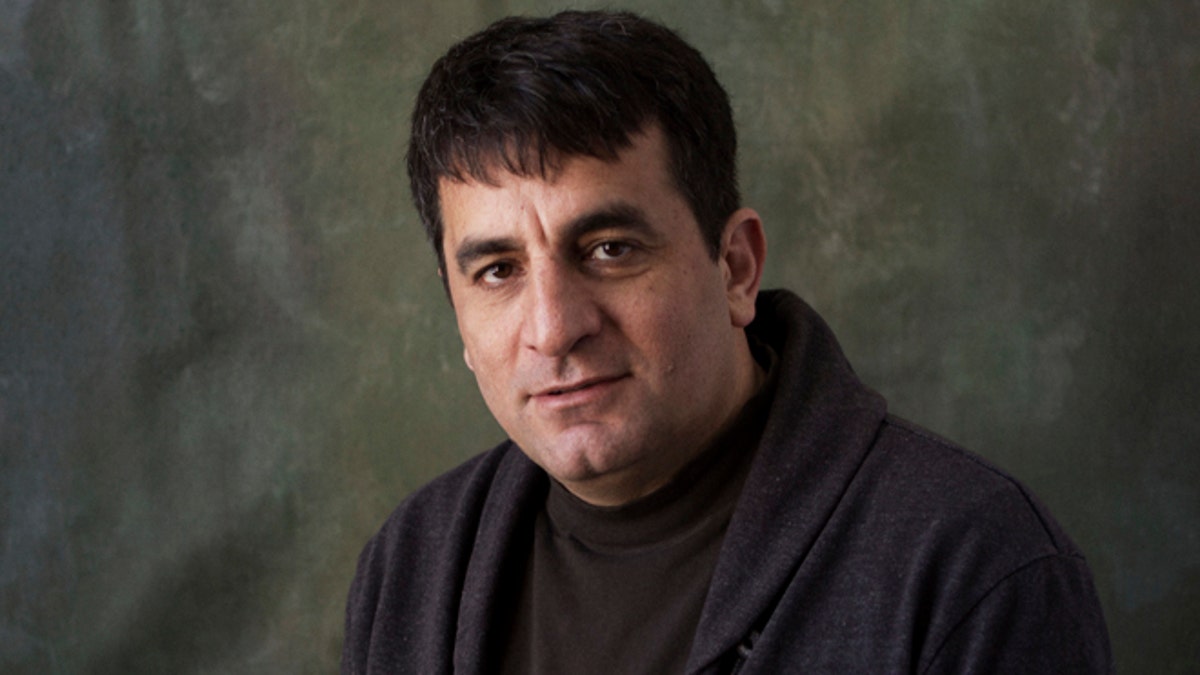
Filmmaker Mike Lerner of the documentary "Pussy Riot" poses for a portrait during the 2013 Sundance Film Festival at the Fender Music Lodge, on Friday, Jan. 18, 2013 in Park City, Utah. (AP/Invision)
PARK CITY, Utah – Months before the arrest of feminist Russian punk group Pussy Riot dominated worldwide headlines, filmmakers Mike Lerner and Maxim Pozdorovkin had already begun documenting the objectives of the young women in colorful knitted masks staging musical protests in the streets of Moscow.
And after three of the women - Nadia, Masha, and Katia - were arrested for hooliganism after storming the stage with their instruments and brash anti-Vladir Putin lyrics inside the Russian Orthodox Christ the Savior cathedral last February, the documentary, now titled "Pussy Riot - A Punk Prayer," went even deeper into questions regarding religion, oppression and creative expression.
"After the arrests we really didn't know which way the film would go, and how long the trial would go for," Pozdorovkin told FOX411's Pop Tarts column at the Sundance Film Festival, where the documentary debuted. "The coverage of the whole thing has been very simplistic both in the West and in Russia. In the West, it was a punk band/human rights story, and in Russia it was more about these hooligans who hate religion. But one of the big misconceptions is that they are a band, but really they are performance artists who use the form of a band to stage these kinds of guerrilla protests."
Filmed over the course of six months, the documentary delves into Pussy Riot's motivations and their two-week trial, which led to two-year sentences for Nadia and Masha, while Katia was released after her lawyer argued she was removed from the altar by security before she had the chance to join in with the performance.
In the film, another lawyer can be heard whispering to the girls ahead of the closing statements, filling them in on Madonna's show of support during her Moscow concert last August in which she revealed the words "Pussy Riot" on her back and called for their release, in addition to donning a mask for "Like a Virgin" in their honor.
The lawyer assured his clients that Madonna's activism on the issue would undoubtedly shave months of their sentences, to which they responded with contained, slightly proud smiles. However, the filmmakers both strongly beg to differ.
"No not at all, in fact it was probably quite the opposite," Lerner said hastily. "That (Madonna's involvement) likely just irritated the court."
A rep for Madonna did not immediately respond to a request for comment.
The directors also noted that the outspoken anti-government group, whose lyrics consist of phrases like "Kill all conformists/Kill all Putinists," have received much more attention in the western world than in their homeland.
"Most people in Russia don't like them and think they got what they deserved," Pozdorovkin continued. "They were actually a lot more radical than people realize. They really tried to start a feminist revolution."
But what "Pussy Riot - A Punk Prayer" ultimately tries to capture is that the young women sought to "make Russia a better place" in their view, and that the seemingly harsh sentences sprang from a misunderstanding on both sides of the spectrum.
"Essentially the whole thing was a failure of communication, they didn't realize the degree to which they had offended the religious community and the religious community didn't understand what it is they were trying to do," Lerner added. "But there is no doubt that the whole thing was a happy gift to (President) Putin and to the Church, who were both suffering - and still suffer - from popularity issues."





